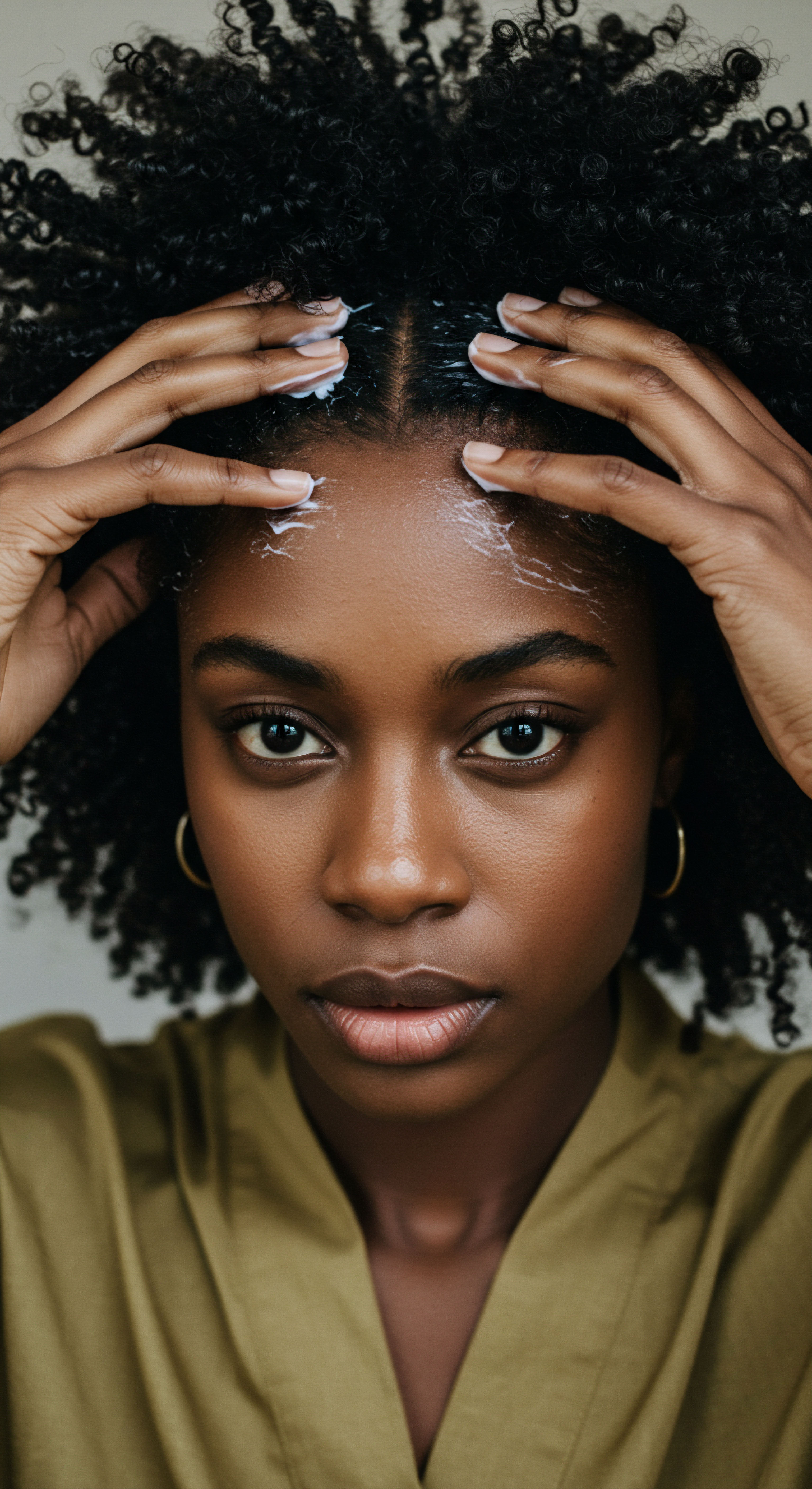
Can poor sleep quality impact scalp health and hair density?
Poor sleep quality can compromise scalp health and reduce hair density by disrupting hormonal balance, impeding cellular repair, and increasing inflammation.

Can sleep deprivation affect hair density?
Sleep deprivation can reduce hair density by disrupting growth cycles, elevating stress hormones, and diminishing stem cell activity.

How does sleep quality impact the health of textured hair?
Optimal sleep quality provides textured hair with a restorative environment, balancing hormones and preventing mechanical stress for robust growth.
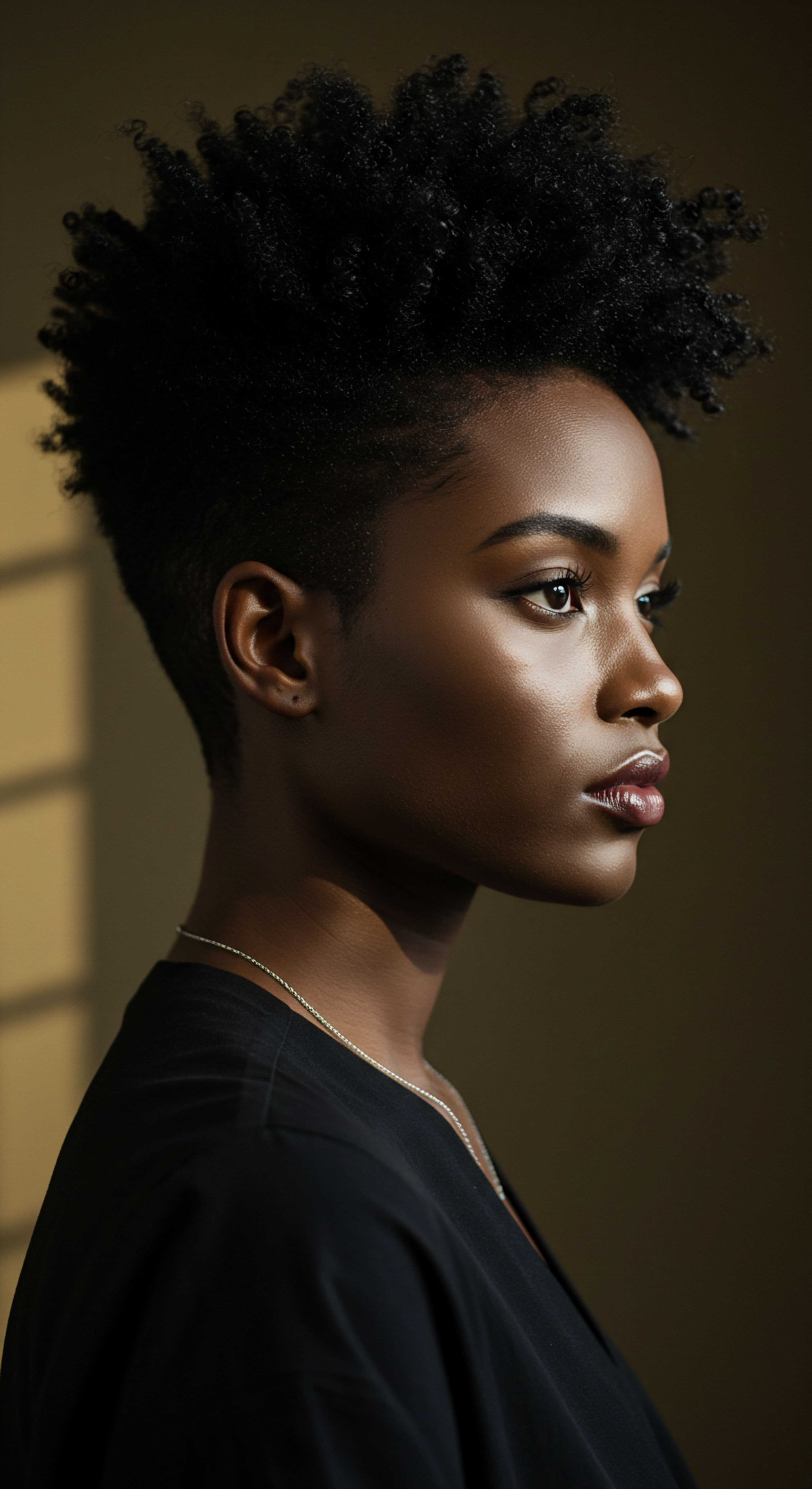
How do sleep cycles and hormones impact hair vitality overnight?
Overnight, sleep cycles and hormone release orchestrate hair follicle regeneration, influencing growth, density, and overall vitality.

Can consistent sleep practices truly reverse hair thinning in textured hair?
Consistent sleep practices can support hair health by regulating hormones, reducing stress, and minimizing mechanical damage, potentially mitigating and improving hair thinning.

How Does Sleep Quality Influence Hair Growth And Health?
Consistent, quality sleep deeply influences hair health by supporting cellular repair, hormonal balance, and the intrinsic follicular growth cycle.

How do cultural hair traditions influence modern sleep care?
Cultural hair traditions influence modern sleep care by offering protective methods and psychological cues that enhance hair health and promote restful slumber.

How does sleep quality impact scalp oil?
Poor sleep quality can disrupt hormonal balance and skin barrier function, potentially leading to increased scalp oil production.
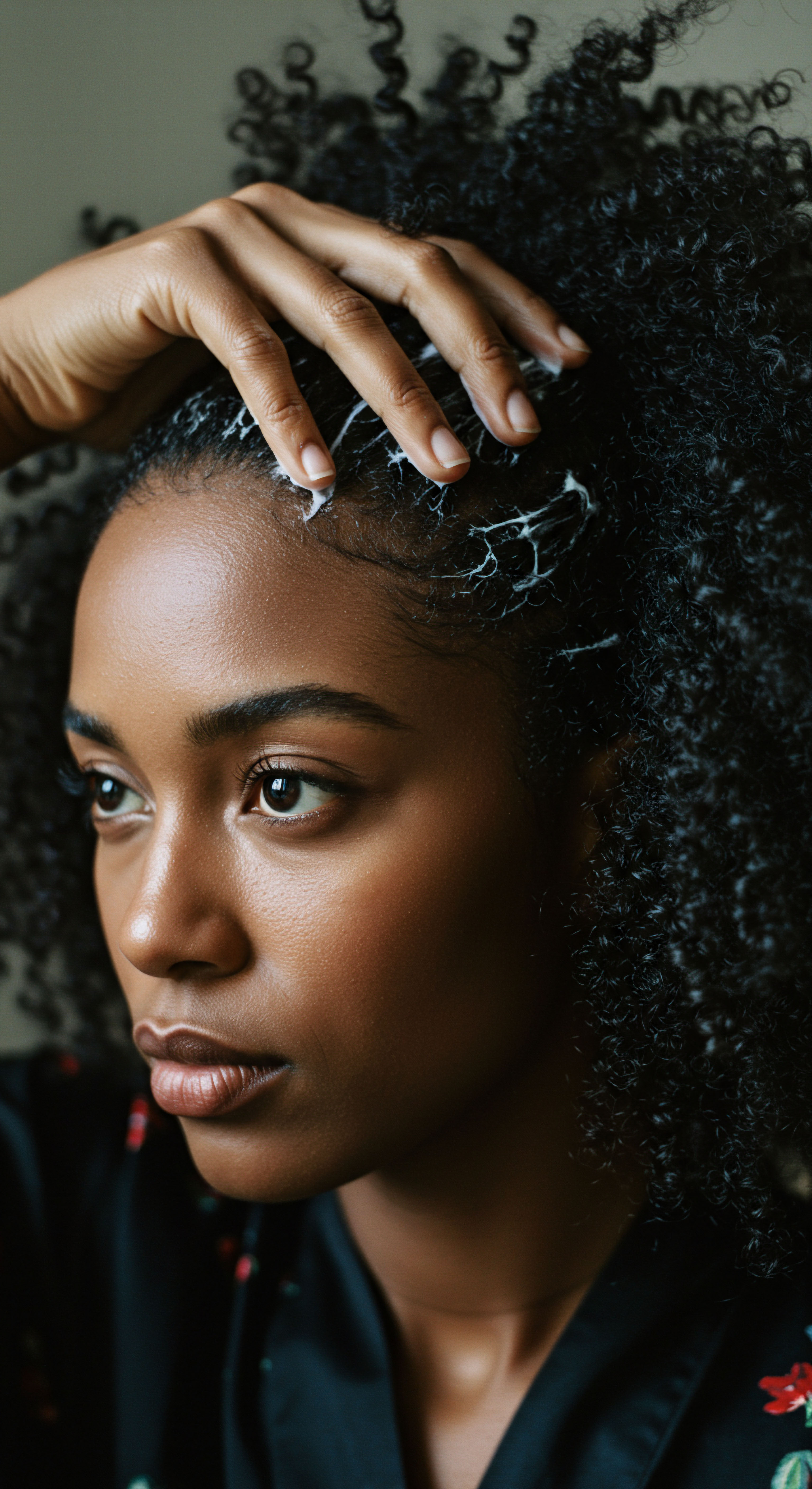
Can improving sleep hygiene reverse hair thinning in textured hair?
Improving sleep hygiene can positively influence textured hair thinning by regulating hormones, reducing stress, and enhancing cellular repair for healthier strands.

What scientific mechanisms link sleep quality, scalp microbiome balance, and hair follicle health?
Sleep quality, scalp microbiome balance, and hair follicle health are linked through hormonal regulation, immune responses, and nutrient delivery.

How does sleep consistency affect hair growth cycles?
Consistent sleep supports hormonal balance and cellular regeneration, vital for healthy hair growth cycles and follicle vitality.

How do cultural hair traditions connect with modern sleep care?
Cultural hair traditions offer protective practices like wrapping and oiling, aligning with modern sleep care by reducing friction, retaining moisture, and mitigating stress.
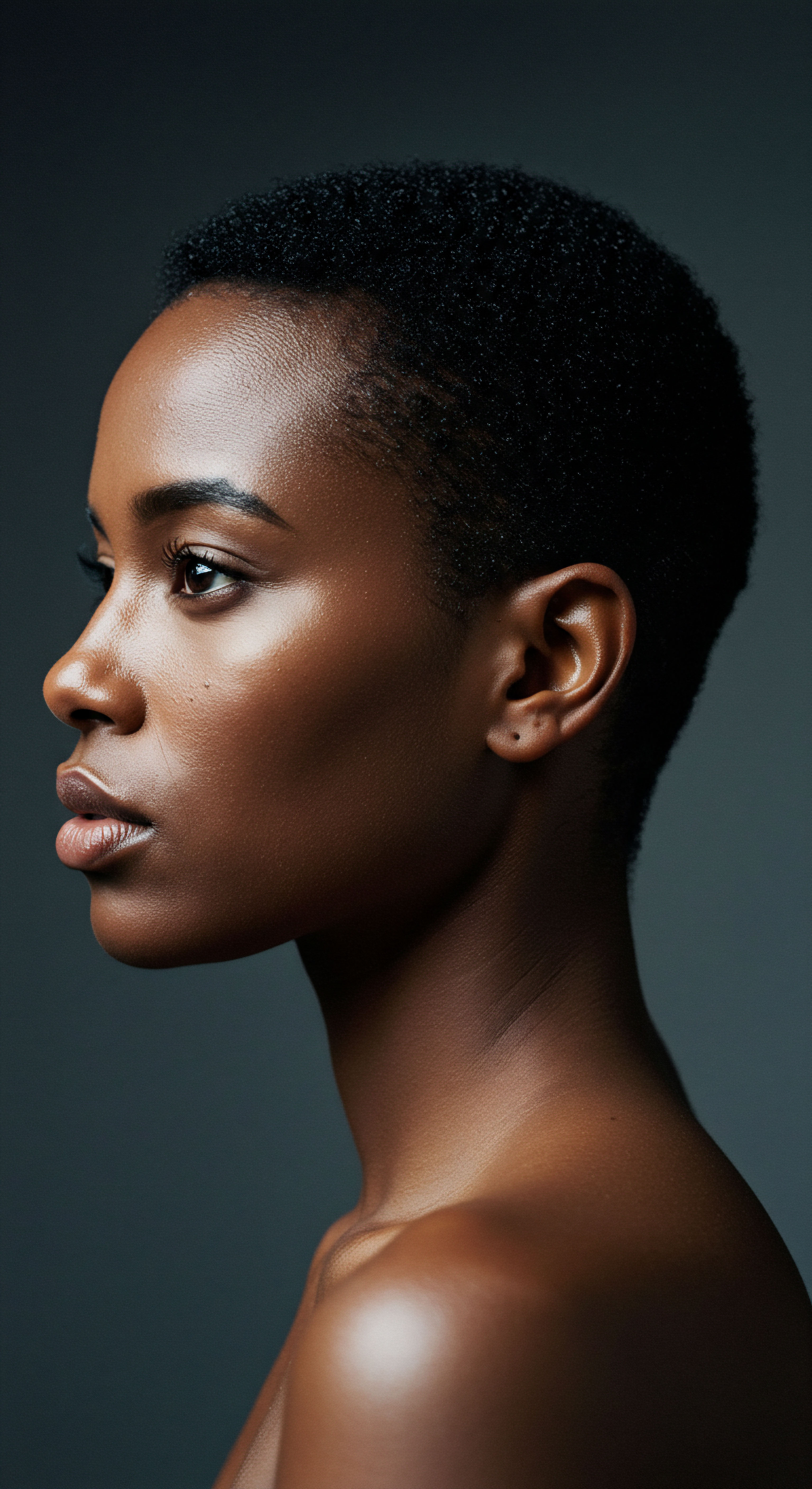
Can sleep quality impact the health and growth of hair?
Optimal sleep quality profoundly influences hair health by regulating hormones, supporting cellular repair, and reducing stress.
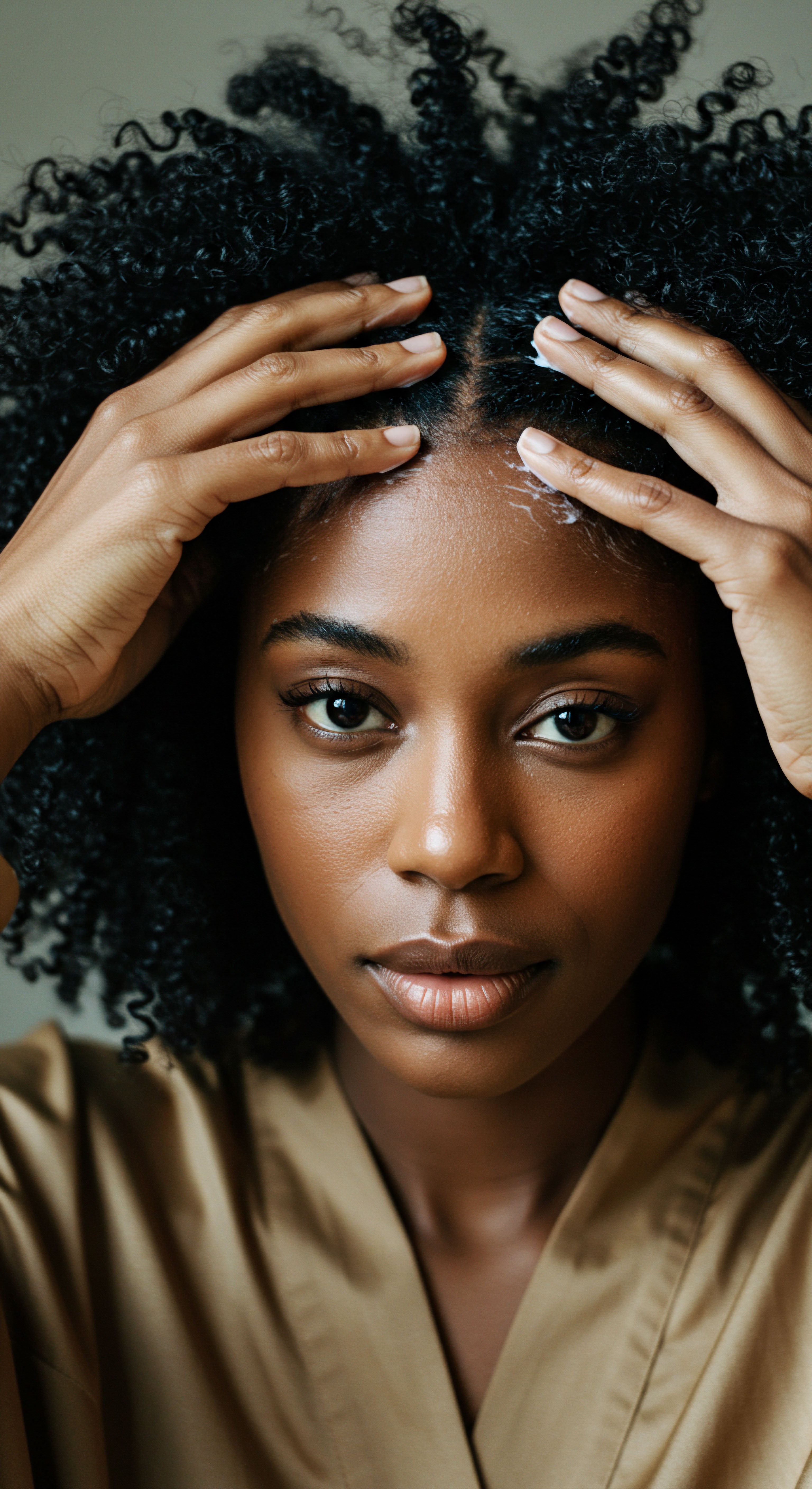
Can disrupted sleep alter the natural bounce of textured hair?
Disrupted sleep can compromise textured hair's natural bounce by impacting hormone regulation, increasing stress, and reducing essential protein synthesis.

Can a consistent sleep schedule enhance hair growth cycles?
A consistent sleep schedule supports hair growth cycles by optimizing hormonal balance and cellular repair, fostering strand vitality.

What specific hormones connect sleep disruption to hair changes?
Sleep disruption alters key hormone levels like cortisol and melatonin, impacting hair growth cycles and structural integrity.

Can poor sleep habits lead to long-term damage for coiled hair?
Poor sleep habits can cause long-term damage to coiled hair by disrupting growth cycles, increasing stress hormones, and exacerbating friction.
